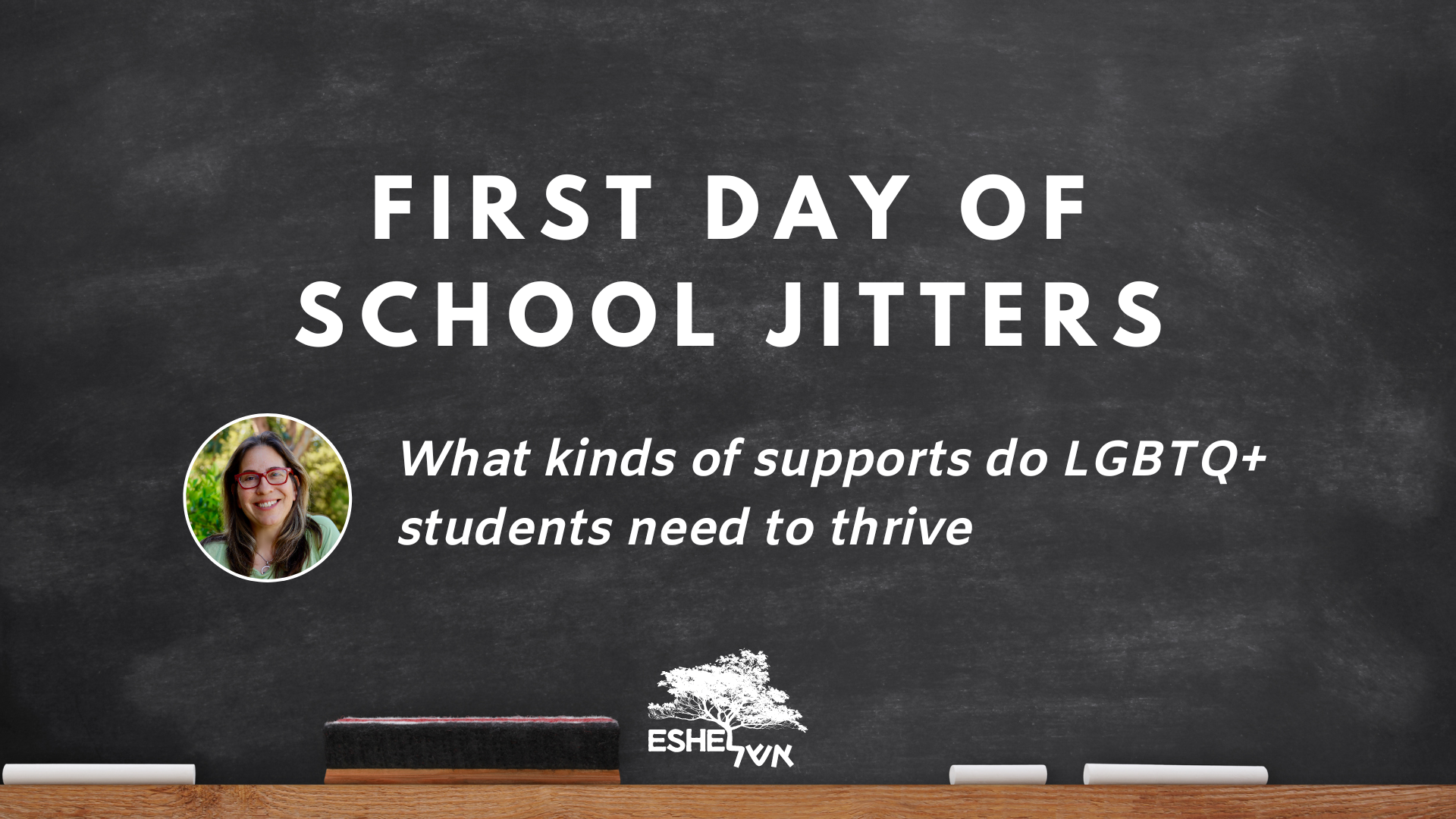
It’s a new year and students are heading back to school. The uncertainty of a new situation brings anxiety and jitters. Whether it’s a new job, a new home, a new classroom, anxiety about the unknown seems universal. Feeling the anxiety levels rise just a bit in my own home, I opened up a conversation one morning this week over breakfast with my two teens who were about to start school.
What are the biggest fears you have about the first day of school? What do you think makes students most anxious?
They referred me to a chatbot I could ask. Dude, no. I asked them to dig a little.
They offered me some things that sounded pretty usual: will they make friends, will they be able to keep their grades up, will they be able to find their classroom, will they like their teachers?
But then I asked them to share what it is like being an LGBTQ+ student in school. They shared with me a whole new layer of things I hadn’t thought about, and which sounded out of the ordinary.
Will I make friends dropped to the level of: will people tease me and be mean to me?
Will I make a good first impression became – will anyone see the real me?
As a gay student one has to decide whether to come out to their friends, or whether they will be outed. Will they be teased, excluded, isolated? Or painfully hiding a secret?
For a trans student who has changed their name, but not legally, anxiety rises when attendance is being taken, fearing someone will call them by the wrong name and all their classmates will hear. For most people roll call is a non-event, but for a trans student this moment represents something else; will they be seen for who they are and how they want to be seen?
For the parents out there, teach your children to find a trusted adult, someone they can turn to who will listen carefully to them and advocate if necessary. Ask if your school has any policies in place to help protect your child.
For the educators out there, consider becoming that trusted adult. If your school does not have policies in place, make some group norms for your classroom.
I did, in the end, reach out to a chatbot, and came up with this pearl of wisdom which is obvious to many of us with LGBTQ+ children, but for Orthodox schools feels radical and aspirational:
It’s important for schools to create a safe and inclusive environment for all students, including queer kids. This can be achieved through implementing anti-bullying policies, providing LGBTQ+ inclusive education, offering support groups, and fostering a culture of acceptance and respect.
Eshel works with schools to achieve this basic level of safety for students in Orthodox day schools. If your child goes to a school that needs help figuring out how to achieve this level of safety, reach out to Dr. Sunnie Epstein, the director of our Welcoming Shuls/Schools project.
Educators! Stay tuned for our anonymous drop in group where you can learn how to make your classroom a place where LGBTQ+ students can be themselves.
 Miryam Kabakov, Executive Director
Miryam Kabakov, Executive Director
